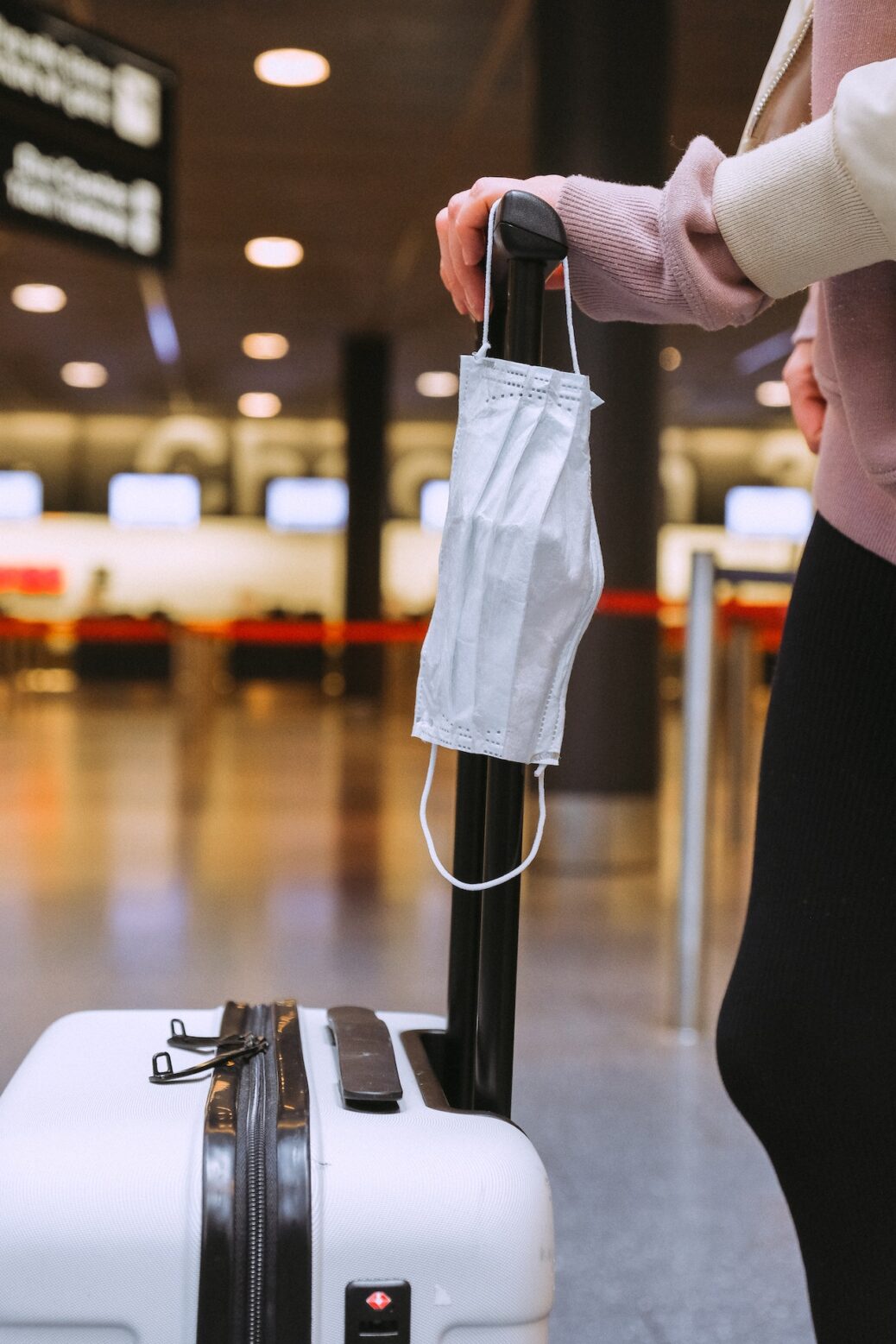How to Cope with Fatigue When Traveling for Work
How to cope with fatigue when travelling for work? Travelling for work is sometimes a very tiring and budgetary necessity. Travelling for work or travel for work can be exciting, but it can also be exhausting. Long flights, jet lag, unfamiliar surroundings, and a busy schedule can contribute to fatigue. However, there are steps you can take to minimize the effects of travel fatigue and make the most of your business trip. In this article, we will explore some effective strategies, such as considering co living (co-living) or adjusting your sleep schedule to cope with fatigue when travelling for work.
Table of Contents
Understanding the Causes of Travel Fatigue
Before we can tackle the issue of fatigue when travelling for work, it’s important to understand what causes it. Some of the most common factors include the following:
- Disruption to your normal routine and sleep patterns
- Exposure to different time zones and changes in daylight hours
- Spending long periods sitting in aeroplanes or cars
- Dehydration from air travel or changes in climate
- Stress from work-related obligations and travel arrangements
By understanding the causes of travel fatigue, we can take steps to mitigate their impact and minimize the likelihood of feeling exhausted and overwhelmed.

Travelling for work can reduce work motivation if not well planned.
Packing Efficiently for Your Travelling For Work
Packaging efficiently is one of the most important things you can do to ensure a successful business trip. Here are some tips to help you streamline your packing process:
- Make a List: Before packing, list everything you need to bring. This will help you stay organized and ensure you don’t forget anything important.
- Pack Light: Whenever possible, try to pack light. This will make it easier to get around and save you from having to check a bag.
- Choose Versatile Clothing: When selecting clothing to pack, choose versatile items that can be worn in multiple ways. This will help you create more outfits with fewer items.
- Use Packing Cubes: Packing cubes are a great way to stay organized and maximise your space. Use them to separate your clothing, toiletries, and other items.
- Don’t Forget Business Attire: Pack any business attire you’ll need for meetings or conferences.
Staying Organized While Travelling for Work
In addition to packing efficiently, staying organized while travelling for work is important. Here are some tips to help you stay on top of things:
- Use a Travel Organizer: A travel organizer is a great way to keep all your important documents, such as your passport and boarding pass, in one place.
- Keep a Schedule: Schedule all your meetings and events so you don’t forget anything important.
- Use Technology: Use apps like Google Maps and Uber to help you get around in unfamiliar cities.
- Bring a Power Bank: Make sure to bring a power bank to keep your phone and other devices charged while you’re on the go.
- Stay Connected: Make sure you have a reliable way to stay connected to your coworkers and clients while travelling.
Pre-Travel Planning of Travelling for Work
Traveling for work can be exciting and stressful, especially regarding the planning and preparation phase. As a professional, you want to ensure that your business trip goes as smoothly as possible and that you’re able to make the most of your time on the road. That’s why it’s essential to plan ahead and take care of all the necessary details before you leave.
This part will discuss some pre-travel planning tips to help you prepare for your next business trip. By following our advice, you’ll be able to minimize stress and ensure a successful trip.
One of the most effective ways to combat travel fatigue is to plan. By preparing for your trip, you can minimize the impact of some factors contributing to fatigue.
Adjust Your Sleep Schedule
If you’re travelling across multiple time zones, adjusting your sleep schedule before you leave can help reduce the impact of jet lag. Start shifting your sleep and wake times by an hour or two each day in the week leading up to your trip. This can help your body adjust to the new time zone more quickly.
Stay Hydrated
Air travel and changes in climate can lead to dehydration, contributing to fatigue. Ensure you drink plenty of water before and during your flight, and avoid caffeine and alcohol, which can further dehydrate you.
Pack Smart
Packing smart can also help reduce the impact of travel fatigue. Bring comfortable clothes and shoes, earplugs or noise-cancelling headphones, and anything else to help you feel more relaxed and comfortable during your trip.
In-Transit Strategies Travelling for Work
Once you’re on the move, there are several strategies you can use to reduce the impact of travel fatigue.
Move Around
Sitting for long periods can be exhausting, so try to get up and move around as much as possible during your flight or car ride. Walk down the aisle, do some simple stretches, or even stand up and stretch your legs.
Sleep Smart
Getting good sleep while travelling can be challenging, but you can do a few things to improve your chances. Use a sleep mask and earplugs to block out light and noise, and consider using a neck pillow or other support to help you stay comfortable.
Time Your Meals
Eating can also impact your energy levels, so time your meals appropriately. Avoid heavy meals that can make you feel sluggish, and opt for lighter options that provide sustained energy.
Post-Travel Recovery
Finally, it’s important to take steps to recover from travel fatigue once you arrive at your destination.
Give Yourself Time to Adjust
Travelling for work is really hard. Feeling tired and confused when you arrive in a new place is natural, so give yourself time to adjust. Take it easy on your first day, and don’t try to cram too much into your schedule.
Get some sunshine
Sunlight can help regulate your body’s circadian rhythms, so try to get outside as soon as possible and get some rays. This can help you adjust to the new time zone more quickly.
Stay Active
Exercise can also help reduce the impact of travel fatigue. Even a short walk or light workout can help improve your energy levels and reduce feelings of fatigue. Also, when travelling for work and needing to stay for an extended period of time, co-living can be a great option for minimizing the effects of travel fatigue. Co-living spaces offer a sense of community and amenities that can make your stay more comfortable.
Consider Co-Living: Travelling for Work
For a good reason, co-living spaces are becoming increasingly popular. These spaces offer private rooms or apartments within a larger building or complex, often including shared living spaces, kitchens, and co-working spaces.
By staying in a co-living space, you’ll have the opportunity to meet and connect with other like-minded professionals, which can help combat feelings of loneliness and isolation when travelling for work. Additionally, many co-living spaces offer amenities such as gyms, laundry facilities, and even cleaning services, which can help reduce the stress and fatigue of travel.
Choose Your Co-Living Space Carefully
When choosing a co-living, it’s important to research and chooses a space that meets your needs. Consider factors such as location, amenities, and the community vibe of the space. Additionally, read reviews from previous guests and ask for recommendations from colleagues or friends who have stayed in co-living spaces.
Take Advantage of Co-Living Amenities
Finally, be sure to take advantage of the amenities that your co-living space offers. Whether it’s the gym, the communal kitchen, or the co-working space, these amenities can help you stay productive, relaxed, and energized during your stay.
Additionally, connect with other guests and participate in community events and activities. By building connections and engaging with the community, you’ll be able to make the most of your co-living experience and reduce the impact of travel fatigue.
Prioritize Rest and Recovery
Despite the benefits of co-living, travel fatigue can still be a challenge when spending extended periods away from home. To minimize the impact of travelling for work on your physical and mental health, it’s important to prioritize rest and recovery.
One way to do this is by creating a consistent sleep schedule and sticking to it as much as possible, even on weekends or days off. Additionally, take breaks throughout the day to stretch, move your body, or relax and clear your mind.
Explore Your Surroundings
Another way to combat the fatigue of travelling for work while staying in a shared living space is to explore your surroundings and take advantage of everything the city offers. Whether visiting museums, trying new restaurants or walking through Central Park, exploring the city can help you feel energized and engaged during your stay. Also, connect with other guests and ask for recommendations for things to do and see in the area.
Conclusion
In summary, travelling for work can be exhausting, but co-living spaces offer a great solution for minimizing the impact of travel fatigue. By choosing a space that aligns with your needs and taking advantage of amenities and community events, you’ll be able to stay productive, energized, and engaged during your stay. Additionally, prioritizing rest and recovery, exploring your surroundings, and connecting with others can help you combat the effects of travel and make the most of your time.
FAQs
-
How do I choose the best co-living space ?
When choosing a co-living space, consider location, amenities, and community vibe. Be sure to read reviews from previous guests and ask for recommendations from colleagues or friends who have stayed in co-living spaces.
-
How can I make the most of my co-living experience ?
Enjoy amenities and community events, prioritize rest and recovery, explore your surroundings, and connect with other guests.
-
Can co-living spaces help reduce travel fatigue?
Yes, co-living spaces offer amenities and a sense of community that can help combat feelings of loneliness and isolation when traveling for work.
-
What are some common amenities offered in co-living spaces?
Common amenities include gyms, laundry facilities, communal kitchens, and co-working spaces.
Thank you for reading our blog post. You can also read How to Manage Your Remote Team and Keep It Happy.
Hello, I’m Cansu, a professional dedicated to creating Excel tutorials, specifically catering to the needs of B2B professionals. With a passion for data analysis and a deep understanding of Microsoft Excel, I have built a reputation for providing comprehensive and user-friendly tutorials that empower businesses to harness the full potential of this powerful software.
I have always been fascinated by the intricate world of numbers and the ability of Excel to transform raw data into meaningful insights. Throughout my career, I have honed my data manipulation, visualization, and automation skills, enabling me to streamline complex processes and drive efficiency in various industries.
As a B2B specialist, I recognize the unique challenges that professionals face when managing and analyzing large volumes of data. With this understanding, I create tutorials tailored to businesses’ specific needs, offering practical solutions to enhance productivity, improve decision-making, and optimize workflows.
My tutorials cover various topics, including advanced formulas and functions, data modeling, pivot tables, macros, and data visualization techniques. I strive to explain complex concepts in a clear and accessible manner, ensuring that even those with limited Excel experience can grasp the concepts and apply them effectively in their work.
In addition to my tutorial work, I actively engage with the Excel community through workshops, webinars, and online forums. I believe in the power of knowledge sharing and collaborative learning, and I am committed to helping professionals unlock their full potential by mastering Excel.
With a strong track record of success and a growing community of satisfied learners, I continue to expand my repertoire of Excel tutorials, keeping up with the latest advancements and features in the software. I aim to empower businesses with the skills and tools they need to thrive in today’s data-driven world.
Suppose you are a B2B professional looking to enhance your Excel skills or a business seeking to improve data management practices. In that case, I invite you to join me on this journey of exploration and mastery. Let’s unlock the true potential of Excel together!
https://www.linkedin.com/in/cansuaydinim/










